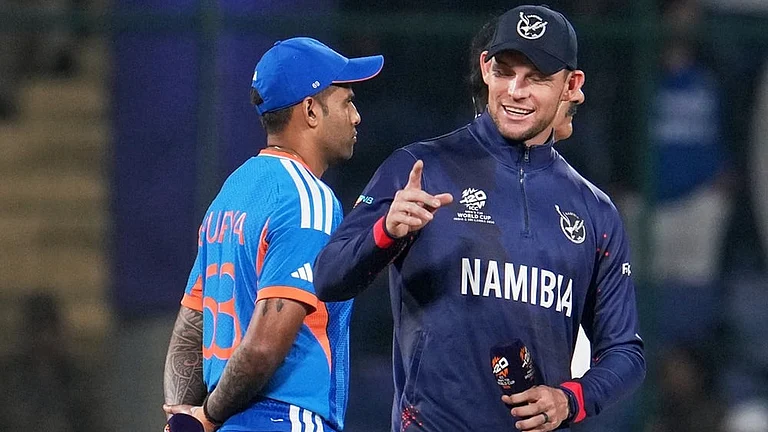Bhutan, the Himalayan kingdom nestled between Asian giants China and India, is now in the crosshairs of Beijing, the latest neighbour to face its high-pressure coercion. Bhutan has a ‘special relationship’ with India, with New Delhi advising Thimphu on the conduct of its foreign, defence and trade policies. In contrast, it has no diplomatic relations with China. Though it badly wants a toehold there, Beijing has so far not succeeded in opening an embassy in Bhutan. The kingdom has always kept China at a safe distance.
Bhutan, like India, is a country with which China has unresolved border issues. Beijing and Thimphu have held 24 rounds of inconclusive boundary talks. In June, China raised the border issue in an unlikely forum—at a virtual meet of the Global Environment Facility (GEF), a US-based forum established in 1992 ahead of the UN Earth Summit in Rio de Janeiro to tackle global warming. The GEF provides funds for small environment-friendly projects. Bhutan’s Sakteng wildlife sanctuary, an area with rich biodiversity, was to get funds to preserve its unique ecosystem. The Chinese representative raised objections at the meet, saying the sanctuary was located in a disputed area between China and Bhutan. The delegate said the area in the eastern tip of Bhutan was on the table for discussion in border talks. Despite Chinese objection, the GEF went ahead and allocated funds for Sakteng.
Raking up its eastern border, as is the case with its border with India’s Ladakh and Arunachal Pradesh, is in keeping with China’s all-round aggressive posture in Asia. Part of the playbook is to make sudden, shocking new claims to increase bargaining power elsewhere—this is the first time China laid claim to Sakteng. Later, Thimphu sent a demarche to Beijing.
Bhutan has differences with China about its western border, centered around the Doklam plateau, and in the central sector in Pasamlung and Jakarlung. Sakteng, in the east, was never disputed.
Former Indian ambassador to Bhutan, Pawan Varma, says, “China is possibly expanding the dispute to Sakteng to prepare for an eventual swap for a larger territory in a strategic location like Doklam.’’ He does not think that eastern Bhutan, adjoining Arunachal Pradesh, is of any strategic value to Beijing.
In 2017, during the 72-day Doklam standoff between India and China over road construction in Bhutanese territory, the kingdom was on a nervous edge. Doklam is in the India-Bhutan-China trijunction and is of strategic interest to India’s security. The plateau overlooks the ‘chicken’s neck’—the narrow strip of land in North Bengal which connects India’s Northeast to the mainland. Bhutan is wary of being caught in the increasingly fractious border dispute between the two Asian giants.
Of all of India’s neighbours, friendly ties with Bhutan have best stood the test of time. The 1949 friendship treaty with Bhutan, updated in 2007, has served both countries well. It was originally signed to keep China at bay as it increased its footprint in Tibet.
Today, India is Bhutan’s largest trading partner, and hydel power developed with Indian help is Bhutan’s biggest revenue earner. “But there is a miniscule section, mostly the young, who feel India’s embrace is too tight. That is natural and nothing to be alarmed about,’’ says Varma. Some Bhutanese business leaders also wish for closer trade links with China’s thriving economy. This view was shared by former Bhutanese PM Jigme Thinley (from 2008 to 2013), who felt that even at the risk of jeopardising ties with India, Bhutan could make use of the economic potential of its northern powerhouse.
New Delhi keeps a watchful eye on Bhutan-China ties. When Thinley met Chinese premier Wen Jiabao at the 2012 Earth Summit in Rio, India was not amused. Subsequently, it withdrew fuel subsidies in the middle of the 2013 national polls in Bhutan. It was restored after new PM Tshering Tobgay resumed charge. Some say the move ensured Thinley’s defeat. India denies the charge.


























